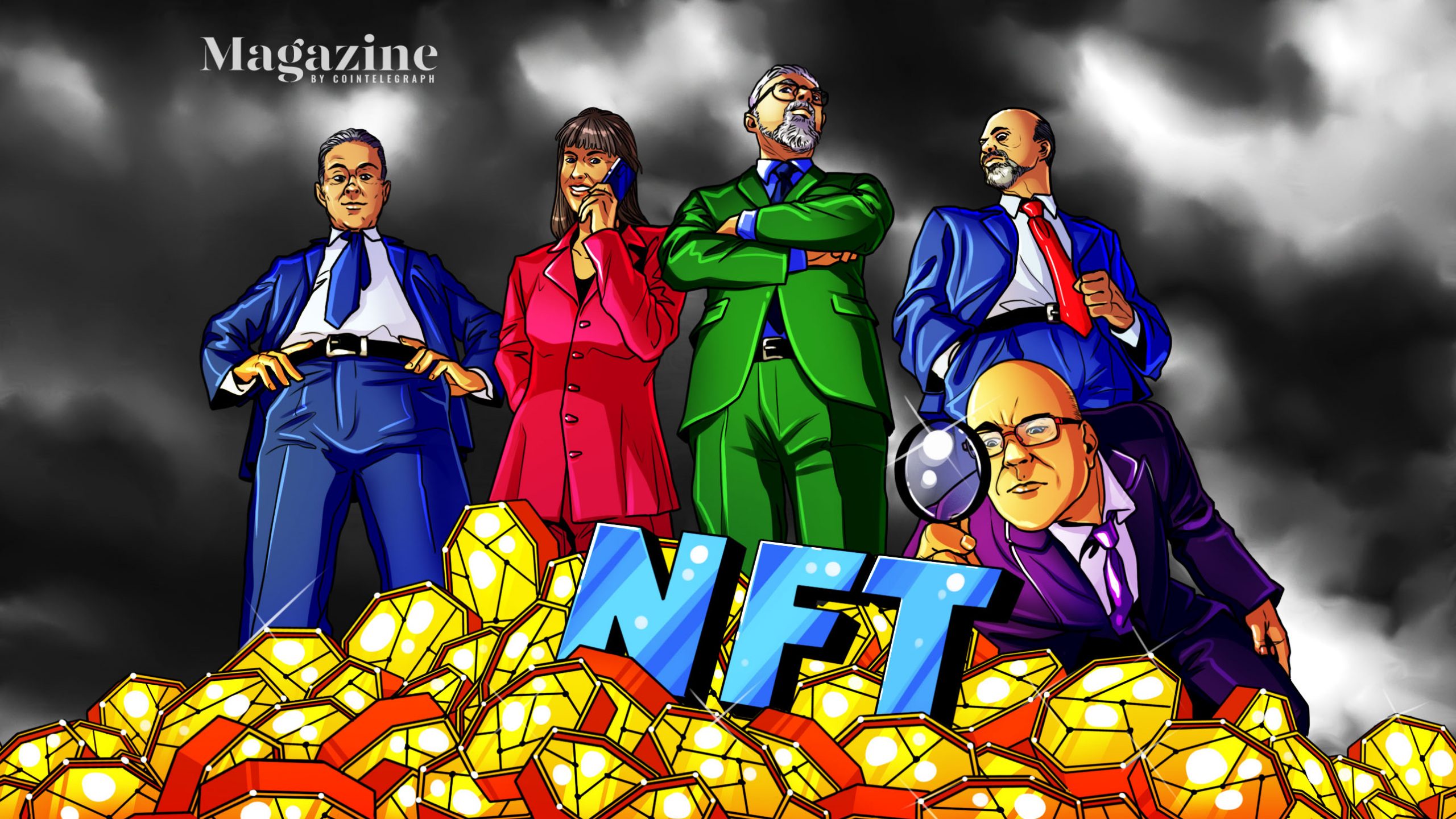“Anyone who says that David Gerard personally stopped their crypto getting into Wikipedia is a fuckwit,” says editor, Wikimedia spokesman and professi
“Anyone who says that David Gerard personally stopped their crypto getting into Wikipedia is a fuckwit,” says editor, Wikimedia spokesman and professional crypto hater David Gerard in his typically no-nonsense fashion.
“There are a lot of fuckwits.”
When Gerard is not passionately arguing against cryptocurrencies in Wikipedia editor discussions, the author of the 2017 self-published hit Attack of the 50 Foot Blockchain can be found prosecuting the case against Bitcoin, blockchain and crypto on the BBC or in the Financial Times.
Even among the most notable crypto critics, Gerard stands out. He‘s hated Bitcoin and blockchain for more than a decade since BTC was first discussed as an alternative funding source for Wikileaks after mainstream payment processors cut it off.

For Gerard, like a number of other critics, the problem with Bitcoin isn’t just that it’s a hyped-up Ponzi scheme or a glorified database with no genuine use case — he sees it as philosophically and politically wrong.
“I saw that Bitcoin was created by internet libertarians and figured that would predict everything about it,” he tells Magazine. “I was correct. People who think they don‘t need to know what they‘re talking about and can reinvent it all from first principles are certain to fuck up in predictable ways, and they have.”
For Gerard — who leans left and describes himself as “liberal” — Bitcoin appears to be a right-wing Libertarian project and that’s reason enough to oppose it.
“Libertarianism as a political ideology is fundamentally childish and dumb as hell. Growing up in Australia, I didn‘t even believe this shit was real — I thought Libertarianism was some sort of savage Swiftian satire, not a thing people would actually believe. Then I got on the internet, and oh well.”
Crypto dystopians
Gerard isn’t the only professional Bitcoin hater out there, with the sector attracting more well-known skeptics and vehement opponents than most. That may be partly because the crypto community seems to hang on their every salvo and negative tweet in a sort of sadomasochistic relationship.
The crypto haters are loud and proud, from gold bug Peter Schiff tweeting in delight at every price drop in his attempts to flog gold to economist Nouriel Roubini shouting bad-tempered invective about criminal Ponzi-like bubbles. They’re not all a bunch of Luddites either: Some have impressive credentials like Nobel Prize-winning economist Paul Krugman or Nassim Taleb who wrote the celebrated book The Black Swan but went on to interject the word ‘Bitdiot’ into every other tweet.

And, there are plenty of grassroots opponents, too, like the zeitgeist style criticisms from NFT haters in the art community who see it as environment-destroying cancer or those in the gaming community who picture it as a shameless cash grab from game developers trying to squeeze another dollar out of users.
The question is: Why do crypto critics bother? What is it about the sector that both fascinates and repels them? Why don’t they just say, “meh, it’s not for me,” and get on with their lives?
this guy works on the most useless tech on the planet… private blockchains 👇🏻 https://t.co/hMoob0qUSq
— Dean Eigenmann (@DeanEigenmann) February 1, 2022
Endless cavalcade of conmen
I ask Gerard, who spends much of his waking hours scanning the internet for negative crypto news stories to feed into his blog. Gerard sold 14,000 copies of Attack — an almost unheard-of number for a self-published book in the United Kingdom — so a certain degree of professional success is undoubtedly part of the appeal. He’s transformed the book into a blog that averages 1000-3000 hits a day, while particularly strong stories like his reports on El Salvador’s Bitcoin Law can get 10,000 hits.
He says that he just can’t look away. “There‘s always stuff to cover, but it is fascinating — it‘s such an endless cavalcade of grifters, suckers and suckers who think they‘re the grifter,” he says.
“The moral core of Attack is that scams and scammers are bad and reprehensible. But, the hilarious stupidity is inexhaustible. There‘s always another story to tell about dumb crooks.”
“If crypto people would like me to stop, probably the first thing they need to do is stop feeding me material.”
A long time ago, in a former brothel
By curious coincidence around about the same time that the Cypherpunks were dreaming up e-cash outside the control of governments in the mid-1990s, Gerard and I were uni student housemates in a shabby former brothel in Brunswick, Australia. I hadn’t seen him since until he popped up in an interview for the film Cryptopia.
Back then, he was a greasy-haired music nerd and student newspaper editor who got into a massive fight with local Scientologists after running an expose on the cult-like aspects of the church and…
cointelegraph.com
